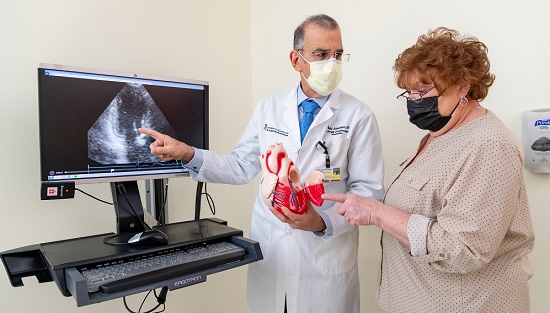Heart Care
High Cholesterol

Cholesterol is a sticky, fat-like substance that travels through the blood. Too much cholesterol can build up in the arteries over time, leading to narrowing of the arteries (atherosclerosis) and blockages that can cause a heart attack or stroke. Eating fatty, fried or processed foods can cause high cholesterol. Family history can also play a role in the development of this condition.
As part of routine care, a cardiologist performs blood tests to measure the levels of LDLs ("bad" cholesterol) and HDLs in the blood stream. Patients who have high LDLs (low-density lipoprotein) may be at an increased risk for heart disease.
Treating High Cholesterol
To treat high cholesterol, cardiologists create a custom treatment plan that include steps to lower overall blood cholesterol levels. It may include:
- Adopting a heart-healthy lifestyle – exercise, a heart-healthy diet and maintaining a healthy weight
- Medications called statins, which help decrease LDL cholesterol and triglycerides
